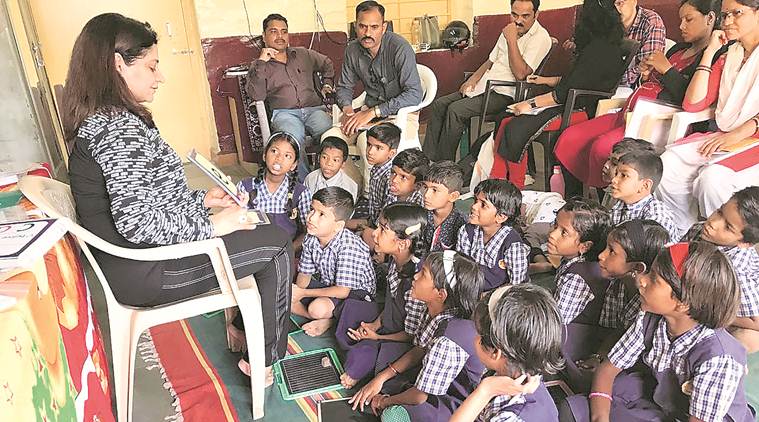
Fluency of students in English language has always been of concern to schools in rural areas. According to Suresh Kurhade, education officer (primary) for Pune Zilla Parishad, which runs schools in rural and the remotest parts of the district, the problem is bigger for schools in his area — primary teachers, almost all of them from rural backgrounds, struggle with English due to lack of proper training and opportunities to speak the language at home or work.
The education department has now decided to tackle this issue head on by starting a pilot project to train teachers in English using the ‘phonics method’. Once teachers grasp the method, which uses the phonetic principles of the language to teach it, they will pass it on to students. Based on a pre-test to set the baseline of the learning and final test — the results of which will come in November — to determine the results achieved, the success of the project will be judged.
Pune ZP’s education department has undertaken the project with the help of Brainstorm International, a Pune-based firm with expertise in phonics education, and a corporate firm that is funding the project.
“We are conducting a pilot project in 20 schools, part of the clusters in Shivne (Maval) and Nirgudsar (Ambegaon) villages. Based on the success of the project, we will expand it to other schools,” said Kurhade. Although the ZP run schools have started teaching English from Class I since 2000, the results have often been less than desired, he added. “The main issue is that primary teachers are not very highly educated. They do the teaching specialisation after Class XII. Also, those who take up the primary teacher job often come from rural backgrounds and have very little fluency in English. The fact that, like their students, they, too, have very little opportunities to use English at home or work, makes it difficult for them to get used to the spoken language and use it confidently. So, we have decided to train our teachers in the language using the phonics method,” said Kurhade.
Phonics, the way of learning to read in which children are taught to decode words, has existed for over a century, but it saw a resurgence of interest in the 1980s-90s, after several countries, including United States, UK, Canada and France, started debating its usefulness in national curricula. Teachers have often supported the method as better than earlier ones. According to teachers, children who were taught using phonics were, by the end of the programme, several months ahead of their expected reading and spelling ability.
According to Harshita Sharma, founder-director of Brainstorm International, which is conducting the workshops for ZP schools, the method is especially useful for teaching, reading, writing and speaking English, as it’s a phonetics-based language.
“Rather than asking them to mug up the words and spellings, we teach students to read, spell and speak using basic sounds used in the language. If they know the sounds and can write them on paper, then they can read, write and speak the language easily. They can read, spell or pronounce even an unknown word,” said Sharma.